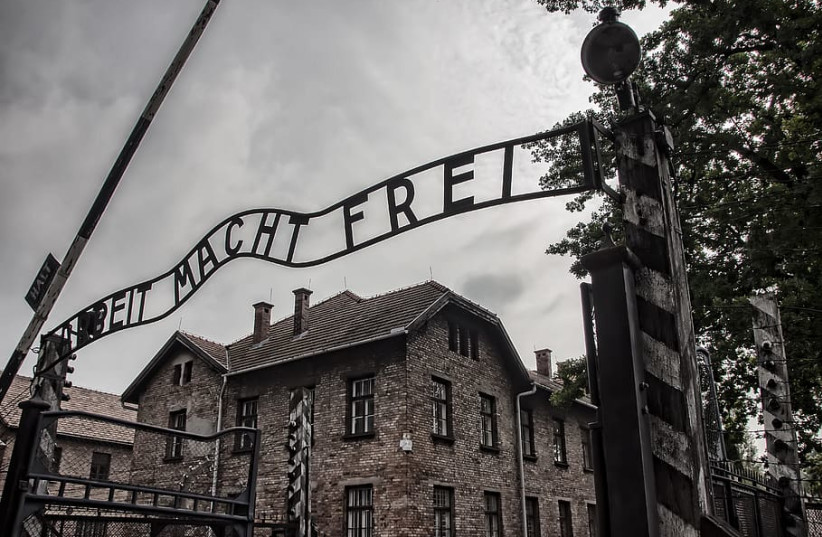My grandmother is one of the 250,000 Holocaust survivors still living today. As a 93-year-old woman, she still recalls the war vividly. She was nine when she fled eastward from Poland with her younger brother and 17 when she immigrated to Israel after a year of exile in Cyprus under British protection.
She rarely talked about those terrible years with her children and grandchildren over the years. After nearly losing her entire family to a Russian winter, suffering hunger, and experiencing daily fear, she chose to remain silent to prevent causing trauma to others.
The fear of trauma, which characterizes many from the second and third generation according to research, did not prevent me from learning about the most difficult period in Jewish history. My research began with my history matriculation exam, and I continue doing so today as the CEO of the Fighting Online Antisemitism organization.
Just recently, the world marked International Holocaust Remembrance Day, commemorating what is considered to be the most systematic and extreme genocide known to humanity in the 20th century. And right now, at a time when antisemitism is skyrocketing on social media, the Education Ministry has decided to remove Holocaust studies as a mandatory subject.
In the Netherlands, a university in Utrecht canceled a Holocaust course “to allow room for different opinions and beliefs.” This was due to concerns about offending a few students’ feelings. This is a dangerous direction for other countries – we can’t expect others to follow an example we’re not setting ourselves.

The decision to cancel the Holocaust exam requirement in this year’s history matriculation exams is perhaps justified, fearing that students will experience post-trauma. But the truth is that the decision-makers in the Education Ministry, as well as the parents concerned for their children, most likely do not live in Israel. PTSD, panic, fear of terrorist attacks in the middle of the day, and nightmares at night accompany almost every person who lives in or visits this country.
I must emphasize that I am not diminishing the sensitivities exhibited by high school students since October 7. Nevertheless, these feelings are inseparable from the lives of every boy and girl in Israel, even if they never leave home. Just watching the news or browsing TikTok will suffice. Just a thought: it would be more appropriate for the students and the education system as a whole if social workers and psychologists were physically integrated into educational institutions right after the outbreak of the war.
Israel has to be a leader by example when it comes to Holocaust education
IF THE Jewish state doesn’t serve as a beacon for Holocaust education, as institutions like Yad Vashem serve as a model for researchers worldwide, we shouldn’t complain about other countries and universities. Consequences could mean that a day is not far when even memorials and concentration camps on Polish soil will be closed.
After all, Poland’s tendency to minimize their role during the Holocaust while distorting history is well-known to all, and certainly to the Israeli government. When these sites are emptied of visitors, it is not inconceivable that skyscrapers, parks, or shopping centers will be built there. It would be another step towards erasing the memory of the Holocaust, destroying the living record of the events that took place. There will no longer be survivors to tell their own stories.
The tools and knowledge I’ve acquired over the years now aid me in combating Holocaust deniers. In 2022, their online content represented nearly half of all antisemitic content monitored by our organization. Now 77 years after the Allied victory over Nazi Germany, there are more and more people who are convinced that the number six million is exaggerated and invented. There are others who believe that “six million were not enough” Jews who were killed.
This illogical decision leaves us, Israelis, Jews, and all who fight against antisemitism, in a position where we cannot effectively oppose countries where Holocaust denial is not illegal, nor can we influence those where Holocaust education is crucially needed. Understanding the Holocaust is key to preventing the spread of offensive content and harmful rhetoric, such as the “Hitler was right” hashtag. Educating people about the Holocaust could have been instrumental in curbing the publication and sharing of such disturbing content.
There is a need for the Education Minister and the Prime Minister to reconsider the controversial decision. This is especially the case during times of war and when the word Holocaust keeps appearing in conversations about the difficult events of October 7.
I believe it’s a grave mistake to overly protect high school students, who will soon be in uniform and potentially deployed to places like Gaza after their exams. Such overprotection could set a dangerous precedent, leading to a significant undermining of Holocaust awareness and memory.
The writer is the founder and CEO of the Fighting Online Antisemitism organization.
